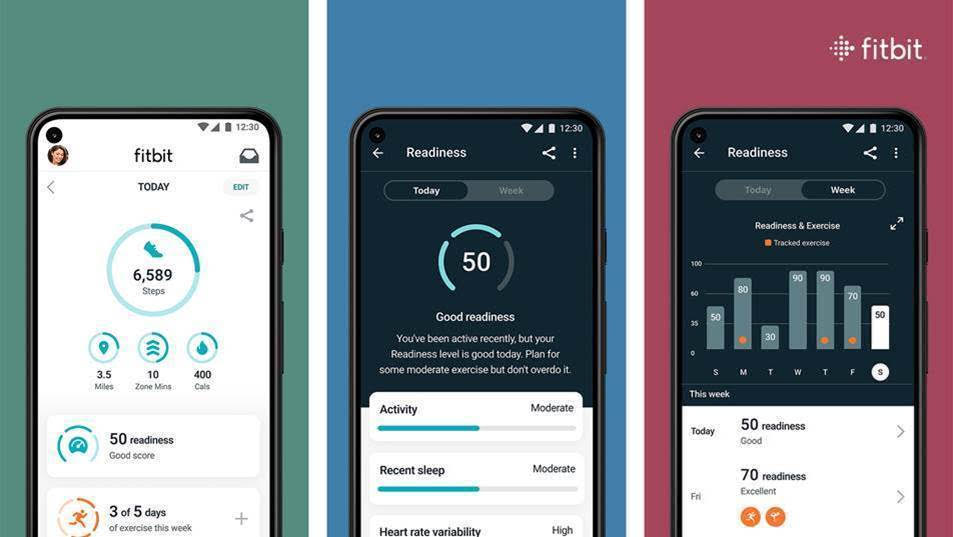Your Fitbit can now stop you burning out or slacking off

Sign up for breaking news, reviews, opinion, top tech deals, and more.
You are now subscribed
Your newsletter sign-up was successful
If you have a Fitbit Premium subscription, you'll now see a Daily Readiness Score each morning that will tell you how much energy you have for the day ahead. The Fitbit mobile app will also suggest some activities to keep you moving, which could include intense workouts if you're well rested, or a slow-paced yoga class if you're more tired.
The score (which is given out of 100) is affected by your sleep patterns, heart rate variability, and recent activity levels. If you own a Fitbit Versa 2, Versa 3, Sense, Luxe, Inspire 2, or Charge 5, you'll see it in the 'Today' dashboard when you load the app in the morning, along with a breakdown of the factors that contributed to it. Fitbit Versa 3 and Sense owners will also be able to check their score on their wrist when they wake.

The app will then direct you to some appropriate training sessions from the Fitbit Premium catalog, depending on whether you should prioritize exercise or rest. A high score indicates that you're ready to tackle a tough workout, while a low score suggests you should take it easy.
Fitbit Charge 5 updates
If you own a Fitbit Charge 5, you'll be pleased to know that its ECG (electrocardiogram) app is now available to use. Open the app on your Charge 5, then place your fingers on the sides of the stainless steel case as shown on the screen, and it will monitor for signs of atrial fibrillation (an irregular heart rate).
The Charge 5 isn't a medical device, and can't be used to diagnose a medical condition, but if it detects signs of an irregular heartbeat then it's wise to get it checked out professionally. Provided you've been using your device for at least 30 days, the Fitbit app can generate a Wellness Report that you can export as a PDF ready to share with your doctor.
Analysis: what's next for Fitbit?
Fitbit owners in the UK are getting another new feature to help them manage their health: blood glucose tracking, which should be helpful if you're living with diabetes.
Your Fitbit can't measure glucose levels by itself, but the new tool allows you to log readings manually so you can see them all in one place and track trends. You'll also get periodic reminders to log your readings, helping you manage your condition. Fitbit owners in the US can also import readings from OneTouch Reveal.
Sign up for breaking news, reviews, opinion, top tech deals, and more.
It's a thoughtfully designed addition, and hopefully a sign that we'll one day see a Fitbit device that's able to measure blood glucose non-invasively. We're not expecting them to appear any time soon, but there's promising research underway.

For example, rearchers are investigating ways to monitor glucose levels non-invasively via spectroscopy, which uses lasers to identify different chemicals, and the SugarBEAT monitor from UK company Nemuara Medical measures interstitial blood glucose by drawing molecules through the skin using a mild electrical current.
Any such device would need to receive approval from the US Food and Drug Administration (FDA) and regulators in other countries, but hopefully the purchase of Fitbit by Google early this year means there'll be more cash available to invest in research and development that will speed the process along.
- We've tested and ranked the best fitness trackers

Cat is TechRadar's Homes Editor specializing in kitchen appliances and smart home technology. She's been a tech journalist for 15 years, having worked on print magazines including PC Plus and PC Format, and is a Speciality Coffee Association (SCA) certified barista. Whether you want to invest in some smart lights or pick up a new espresso machine, she's the right person to help.